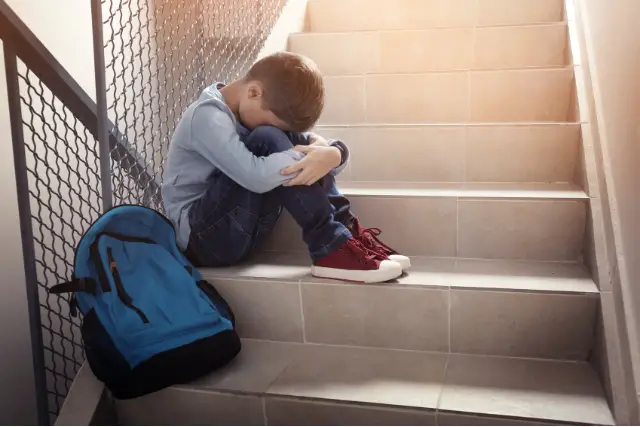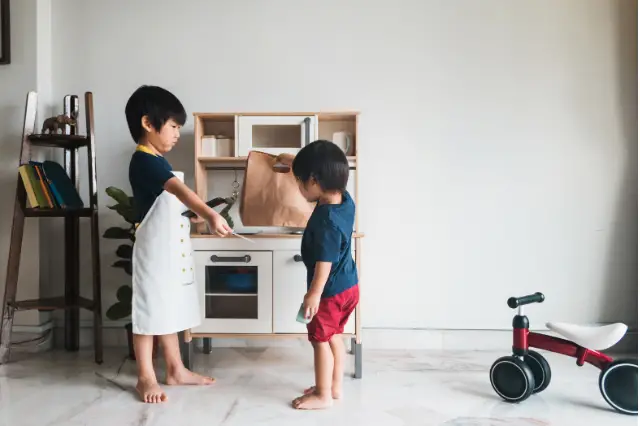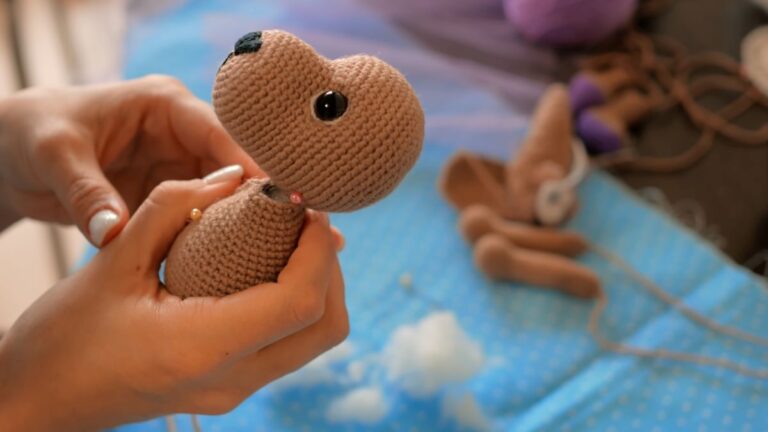4-Year-Old’s Behavior Changed Since Starting School?- Read This

Starting school is exciting yet overwhelming for parents and children. It is indeed one of the biggest transitions in a child’s life.
Starting school means getting up early in the morning and spending almost half the day at school, which can be long and tiring for a kid. Sudden changes in routine can lead to behavioral changes in a child. So many parents here can agree that they noticed behavior changes in their 4-year-olds when they started school.
First, it is normal to experience behavioral changes when a child starts school. Secondly, the parents need to know the reasons for such changes and how to cope with them.
Common reasons for behavioral changes in 4-year-olds when they start school:
Here are the most common reasons why your 4-year-old’s behavior changes after he starts going to school.
1- Change in routine:
It is common for preschoolers to find it extremely hard to adapt to a new routine. A sudden change in routine will make a child overwhelmed.
Getting up early to get ready and stepping out of the house makes them cranky, and you will notice a behavior change.
2- Not getting enough sleep:
The child’s behavior is likely linked to an inappropriate sleep routine. It makes them tired the whole day and grumpy about small things.
3- Separation anxiety:
Till the age of 4 and sometimes even above, kids usually are used to their parents. Some preschoolers face separation anxiety when they start school. It is completely normal to be anxious and miss their parents at school.
But, sometimes, this anxiety brings a lot of behavioral changes like shouting, crying loudly, or hitting. Some kids complain about a stomach ache or feeling nauseous. Such behavioral changes must be addressed with love and patience; otherwise, the anxiety can be prolonged.
4- Tiredness because of hectic routine at school:
Spending almost 5-6 hours at school can tire the child. Along with this routine, they also have homework at home. Tiredness can lead to behavioral changes like difficulty in learning, prolonging small tasks, and loss of concentration.
5- Learning from other kids at school:
4-year-olds are impressionable, and other kids can easily influence them. One reason for behavioral change in a preschooler is learning it from other kids in the school.
Kids adapt to silly things more quickly rather than good ones. You might notice behavioral changes such as using silly words, cursing, interrupting, talking back, lying, burping, etc
6- Infections and viruses at school:
Kids are not exposed to so many viruses at home, but at school, they get exposed to an open environment. As a result, various germs will attack them, making them feel unwell and messing up their behavior.
Sadly, You can’t do much about it. With time the child will be immune to the environment.
7- Not being able to make friends:
Some kids of this age cannot express themselves and make friends easily. Because they do not make friends at school, they find it boring to go there every day. Since they don’t have fun at school, a child’s behavior can be changed, and he can become extremely fussy attending school.
8- Overwhelmed with the learning:
One of the most common reasons for behavioral changes in preschoolers is the lack of interest in learning. Sometimes a kid may not like how he is taught in the class or find it difficult to understand.
Read more: What to do if a 4-year-old is not interested in learning?
The trouble with learning can also be a reason for ADHD, separation anxiety, or any other developmental issues.
9- Don’t want to be independent:
Preschoolers are mostly 4-year-olds who still depend on their parents for most tasks. Going to school means getting independent on many things like having lunch alone, going to the washroom, taking out his books from the bag, doing some independent writing, and much more.
Some kids find it difficult to do small tasks alone, while other kids of his age are doing it just fine. Such responsibilities at school make the child unhappy; hence his behavior changes.

What to do when your 4-year-old’s behavior is changed after such a transition?
Here’s what to do:
1- Build a healthy routine:
You must plan ahead. Start putting your child into a school routine weeks before you start sending him to school.
Old routines cannot be changed overnight; it takes time and effort to transform them into new ones. Even an adult cannot change his routine suddenly.
So it is crucial to start working on the routine around 2-3 weeks before admission to make “going to school” easier.
2- Ensure your child is getting enough sleep:
It is very important to ensure that the child gets enough sleep as he used to have before starting school.
If your 4-year-old is not getting enough sleep, he will have numerous behavioral changes.
A complete 10-12 hours cycle of continuous sleep makes the child fresh and makes him wake up on his own.
Click here to find out how to ensure your 4-year-old gets enough sleep.
3- Give your child time to adjust at school:
Realize that he is just a 4-year-old kid who has not gone out alone in the past years of his life. It is understood that he will take time to adjust to the school and routine.
Generally, kids take two weeks to a month to settle in the new environment, so have patience and treat the child with love and affection.
4- Understand the child’s behavior:
As kids grow up, their behavior changes according to their age group and social circle. It is natural for a human being to change with time.
So understand that any behavioral changes are expected. As your child goes through more transitions, you will see more changes.
5- Show enthusiasm to send a positive message to your child:
Keep your calm and continue practicing positive parenting practices. Do not pass the frustration to the child.
If the child complains about the school or you see some alarming behavioral changes in him, work on it without pointing it out in front of the child. Gradually he will learn and adjust the way you want him to be.
6- Cut screen time
Screen time is a great problem in today’s world. Kids watch cartoons for long hours, and the blue light radiation from the screen disturbs sleep quality. Your child will become irritated and wake up several times at night.
As screen time is the biggest culprit of bad behavior in kids, limit it as much as possible.
7- Handle separation anxiety with love:
I understand that sometimes a preschooler takes a lot of effort and patience to settle in the school, but we need to realize that he is just a kid who fears being alone.
It may take weeks or months for him to settle down, but eventually, he will. So do not treat him harshly or rudely when he does not leave your hand in the morning. Try different ways to convenience him and make him understand that it is important for everyone to attend school.
8- Find the root cause of changed behavior:
If you think your child has adapted to weird things after starting school, find out who he is sitting in the class or with whom he plays the most. Then, analyze his behavior and work on it at home instead of complaining about the other child.
Children get attracted to silly things, but as parents, we must correct them and tell them that this behavior is wrong.
9- Focus on his diet:
To keep him strong and fight the germs he would get exposed to in school is to give him food that builds the immune system. Take him to the doctor and get prescribed multivitamin syrup.
10- Take action on bullying:
Usually, bullying doesn’t happen in preschool. But if your child complains of any such thing at school, then immediately talk to the management and the teacher to take strict action against it.
Bullying should never be tolerated, even at the preschool level.
11- Help him overcome shyness:
If you think your child has difficulty making friends and is shy to talk to children, then take him to places where he can mingle with children his age.
Spend weekends with his cousins or neighborhood kids so that he takes an interest in other kids at school too.
12- Make him little independent prior the admission:
Make him independent with small tasks before his school admission. For example, tasks such as going to the washroom, cleaning up the toys, basic dressing skills, organizing the bag, eating by himself, and independent writing can help the child in school.
Summary:
It is totally natural for a child to show changed behavior after going through a transition. Your 4-year-old lived only under parent supervision before, but now he is exposed to different behaviors of classmates and other people at school. He will learn different things from other kids. It is best to give your child some time to adjust; meanwhile, keep up with positive counseling. Practice gentle parenting and ensure your child gets enough sleep and healthy eating.







